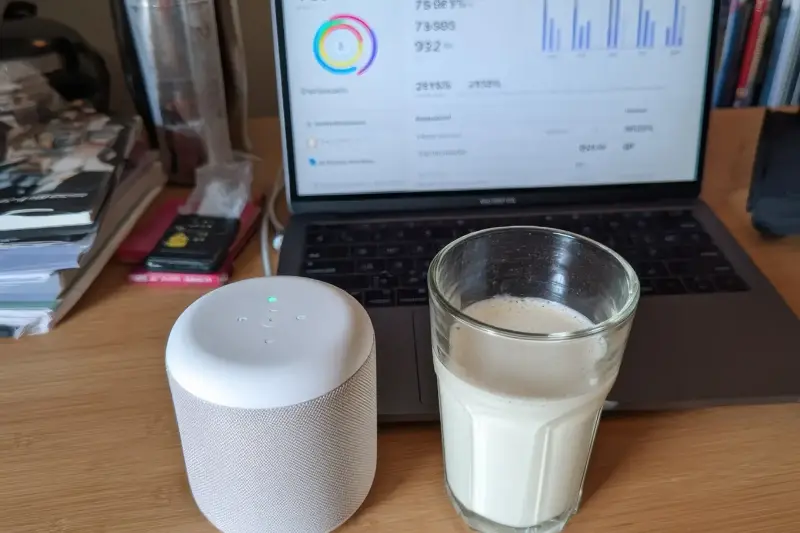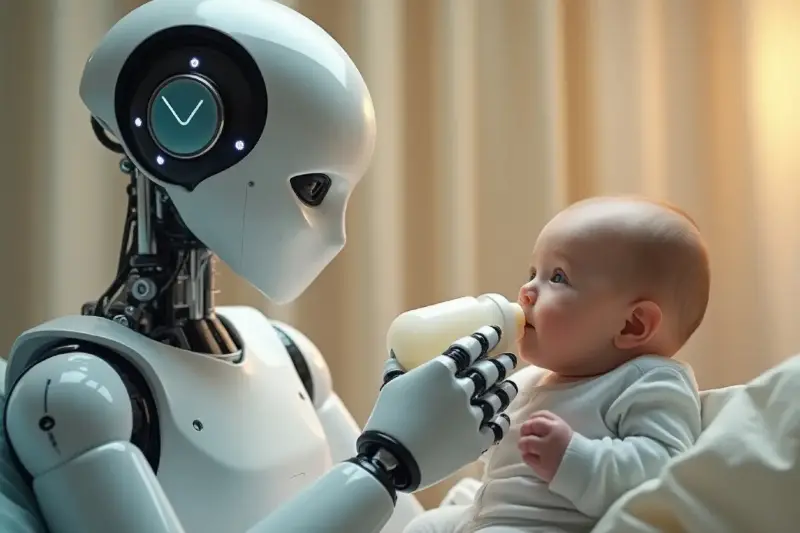
For generations, the question of whether a baby is getting enough milk has sparked worry in the hearts of parents across the globe. Silent midnight feedings, weight checks, and frantic Google searches are hallmarks of modern parenthood. But what if technology could take the guesswork out of one of parenting’s greatest anxieties? Now, an innovative smart device is stepping forward with answers based on science, not speculation.
A New Era of Baby Feeding Confidence
Gone are the days of relying solely on guesswork, baby scales, or counting wet nappies. A new wave of smart devices said to accurately monitor a baby’s milk intake is captivating the attention of parents and paediatricians alike. These ingenious tools, often resembling a sleek wearable or bottletop companion, use sensor technology and artificial intelligence to track precisely how much milk your baby consumes.
Imagine a device that effortlessly links with your smartphone, delivering real-time updates and historical data right to your fingertips. This vivid new world gives parents the reassurance they crave with metrics tailored to each feeding—down to the last millilitre.
How Does the Technology Work?
Modern smart feeding devices employ a range of sophisticated sensors and algorithms designed to offer accuracy and ease:
- Weight sensors: These detect changes in bottle or breast milk volume before and after feeds, delivering an exact measurement of intake.
- Bluetooth connectivity: Instantly syncs feeding data with your phone or tablet for easy review.
- Custom alerts: Reminders and red-flag notifications let you know if feeding patterns fall outside healthy ranges.
For breastfeeding mothers, some devices even fit discreetly within nursing bras, gauging milk consumption minute by minute—a breakthrough for those who have struggled to quantify feeds without switching to bottles.
Why Does Accurate Milk Measurement Matter?
Uncertainty about feeding can manifest as both physical and emotional stress for parents. An inadequate milk supply can impact a baby’s growth, while overfeeding may lead to digestive distress. Here’s why precise data makes a difference:
- Peace of mind: Nothing compares to knowing your baby is thriving, backed by cold, hard numbers.
- Better health monitoring: Early detection of irregular feeding patterns can point to pressing health issues, such as reflux or allergies.
- Personalised support: Data can be shared instantly with healthcare providers, enabling tailored advice beyond the “one-size-fits-all” recommendations.
- Track progress: Daily, weekly, and monthly feeding trends offer insight into your child’s development and routine.

From Apprehension to Empowerment
Adapting to any new technology brings questions—How accurate is it, and will it really help? Feedback from parents trialling these smart devices has been overwhelmingly positive, with many citing renewed confidence in their nurturing abilities.
One father from Manchester put it simply: “Before, we argued constantly about whether our daughter had eaten enough. Now, the app tells us, and there’s no more second guessing.”
There are, however, things to consider. These gadgets are not replacements for medical judgement; they are tools within a holistic approach to care. Eyes, instincts, and a listening ear remain invaluable.
The Future Holds More Than Just Answers
As science meets the cradle, the age-old guessing game of infant feeding may soon be a thing of the past. What new insights will these smart devices reveal as their datasets grow? Will they offer clues on colic, allergies, and sleep—questions that have baffled families for centuries?
As you ponder the next bottle or breastfeeding session, remember: technology is here to lend a hand, but the irreplaceable bond between parent and child still anchors every feeding moment. Could this be the dawn of a future where peace of mind is just a notification away? The answer, like a well-fed baby’s smile, may be closer than you think.
